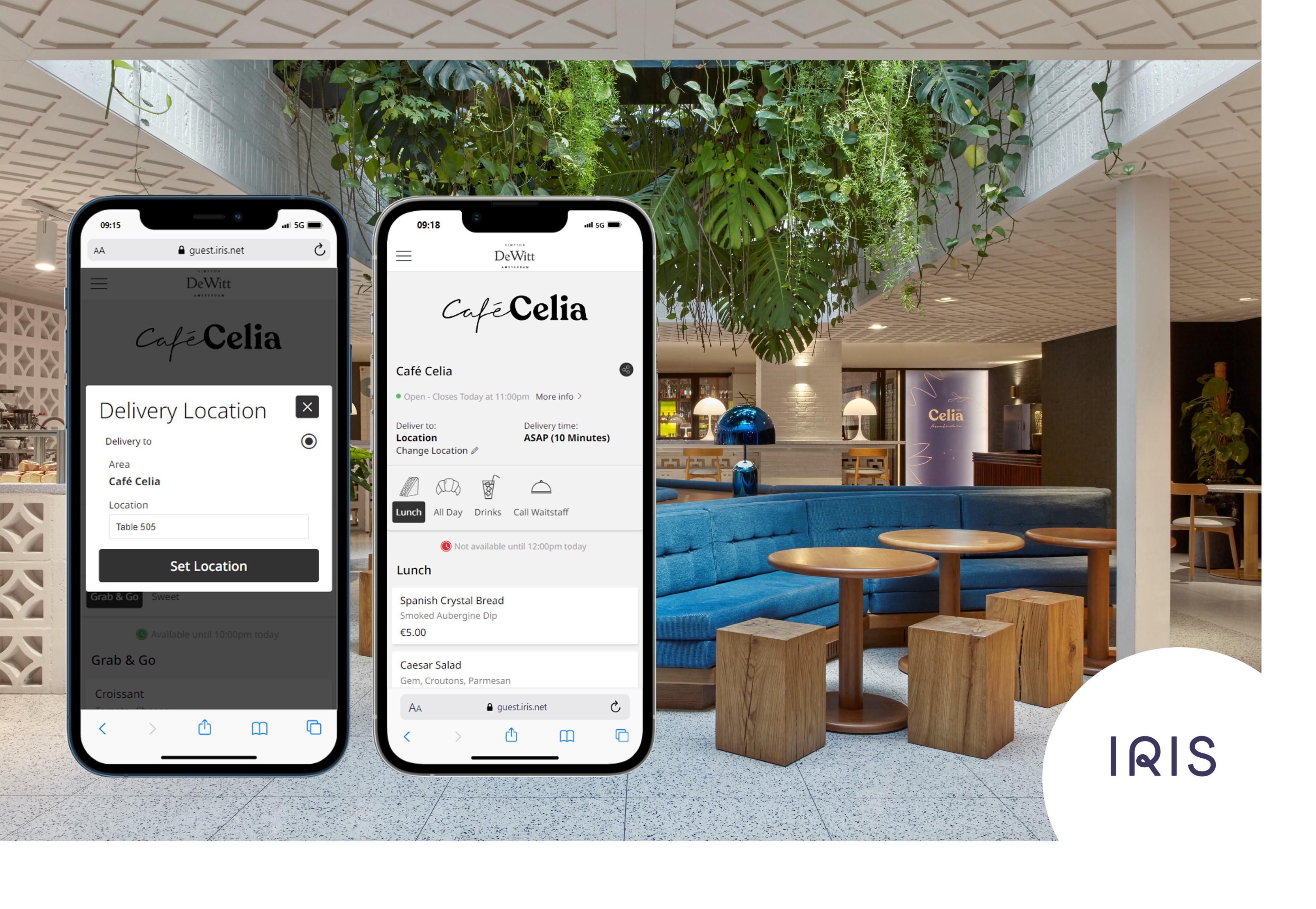

A successful “book direct” strategy requires three things: a modern booking engine that’s easy to use and encourages upsells, an active and authentic online presence that drives organic and paid conversions, and effective search engine optimization that ranks your hotel above its competitors.
The SEO stakes are high: each direct booking gives your hotel a chance to own the relationship with that guest, which gives you the opportunity to foster long-term loyalty. There’s also a short-term benefit: fewer commissions paid out to intermediaries, which means more profit for your hotel.
To keep your hotel well-positioned on organic search, here are eight focus areas that either directly or indirectly influence SEO. By mastering all eight, you’ll be playing the best SEO game possible!
#1: Start with your website
Being thoughtful in planning out the structure of your website is the best strategy for long term success. While guests might not notice an easy to navigate website, they always notice one that is not. Focus on creating an intuitive URL structure along with clear images, and accurate headings and subheadings in the correct hierarchy. These elements will greatly improve SEO as well as the overall user experience.
Backlinks are one of Google’s most important SEO ranking factors. Creating high-quality content not only provides value to guests, but also increases the likelihood of recieving backlinks that can drive potential guests to your website. Press releases are the most common content for backlinks, but creating blogs around a trending travel topic, or posting informative destination content on your website can also attract numerous backlinks from other blogs and travel sites. Additionally, there are additional channels like outreach and directories that are ideal for backlinking opportunities.
#2: Complete your Google Business Profile listing
One of the frustrating truths about hospitality marketing is that the majority of travel searches start on Google. The company is the gateway to the Internet, which means you can’t really afford to miss out on this traffic source.
Google Business Profile is the interface that the search giant uses to showcase hotels in travel searches. Google recently made the listings free, which is a small concession to hotels who were previously charged for this feature.
Bing Places is another free local business directory. With a Bing Places for Business listing, your hotel can enjoy improved search rankings based on location and provide potential guests with accurate information about your hotel like up to date contact details, amenties, and photos.
Nonetheless, paid ads continue to have priority placement, so it’s imperative that your Google Hotels listing is comprehensive and complete. To ensure that you have the best chances of earning organic clicks, start here.
#3: Master the review signals
The other travel gateway for hotels is Tripadvisor. The average traveler will start on Google, create a short list of potential hotels and then research reviews on Tripadvisor before making a final decision.
That means that your hotel needs to be active and optimized on influential review sites like Tripadvisor, Google, Facebook and individual OTAs. Each review influences your organic SEO, as these platforms use review signals in their ranking algorithms. Your online reputation hinges on four factors: review recency, density, velocity, and review responses. This means on top of your other online marketing efforts, it’s imperative to respond thoughtfully and regularly to reviews (both positive and negative) on OTA sites.
#4: Do your research
Once you’ve optimized your two main organic search gateways, it’s time to evaluate the competitive landscape. Which keywords and phrases do your competitors rank for? Are these keywords that you want to rank for as well? Which keywords and phrases can you dominate? Your keyword research should answer these questions and help you identify and prioritize the most important terms for your hotel.
To see search volume, trends, related keywords, and content opportunities, you can use a free tool, like Google Keyword Planner. For a more detailed view, you can turn to more comprehensive paid tool like Ahrefs. You should also analyze your website to find the most popular and common search queries used to discover your site, as these should inform your SEO strategy.
#5: Content clusters before keywords
Rather than just optimizing web pages with the same keyword or keyphrase over and over, create a content plan that clusters similar content around specific campaigns and marketing objectives. This is a great oppotrunity to introduce AI into your marketing efforts. In particular, tools like BARD can be an incredible asset for optimizing your keyword research. These tools can analyze vast amounts of data, including search trends, user behavior, and competitor strategies, to identify high-potential keywords. AI algorithms can also uncover valuable insights that might be missed through manual research alone.
On the otherside of AI, be sure your keywords are optimized for generative search. Focus on using keywords naturally on your website and having high-quality content that addresses what users are searching for. This may include blog posts, dedicated landing pages, and even product and offer pages - each optimized for a single priority keyword or keyphrase, supported by 1-2 related keywords/phrases.
Let’s say your primary keyphrase is “NYC boutique hotel.” This is a very competitive term, so you’ll want to research related keyphrases and build out a “keyword cluster” that resonates with your target demographics. For example, if you want to create a cluster around foodies, you can break it down by type of food and/or neighborhood, such as “top steak restaurants in Tribeca.”
Focus on quality content that flows naturally and provides value to the reader while highlighting variations of your focus keyword. For instance, if your main keyword phrase is “weddings in Minneapolis”, a related phrase could be “getting married in Minneapolis.” Your wedding page should use these overlapping keyword phrases so you can rank for both searches - rather than building standalone pages for each.
#6: Monitor performance daily
SEO is a constant battle, and there’s no time to coast. Even if you currently rank well for your target keywords and phrases, that status can be yanked away at any minute.
This precarious positioning means that you must monitor SEO performance frequently, preferably daily. With a keen eye, you can catch any drift before it becomes a major headache. And with fast enough action, you can outrun the competition who may not be paying close attention. As you widen the gap, it makes it more difficult for the competition to catch up!
Things to look for in your daily reports in Google Search Console and Bing Webmaster Tools:
- Mobile performance. Search engines prioritize sites that load quickly and provide a better user experience in mobile.
- Broken pages. Fix any broken pages or other issues that affect your site’s search competitiveness.
- Up-to-date sitemap. Search engines need a recent map of your website to know exactly what you want them to see, so make sure any newer pages are accounted for.
#7: Limit keyphrases with thoughtful metadata
Metadata tells search engines what each page on your website is about. It’s how you speak directly to the bots that crawl your pages to determine topic, content and relevance.
Your goal is to give bots a clear indication of what content readers can expect to find on that webpage. With that in mind, limit your keywords or keyphrases to a single priority paired with 2-3 related keyphrases. That way, you can rank for searches around “things to do in Philadelphia” and “Philadelphia things to do” without having to create two separate pages.
Your meta description should accurately explain the page’s content within the first 155-160 characters, including a brief and descriptive headline that includes a focus keyword or keyphrase. You’ll also want to use your focus keyword/phrase in the URL whenever possible.
The best path to metadata mastery is to work with expert content creators who can help you hit your targets and craft content that resonates with your ideal guests and ranks well in organic search results.
#8: Lean into the longtail
Many hotel-related keywords are fiercely competitive. If you can step down a notch and look for slightly less competitive terms, you can target the “long-tail” of search. Those are the keywords with lower overall search volumes for which you can realistically rank.
Your blog is your portal to the longtail. The “longtail” of search refers to the vast majority of keywords and phrases that don’t get a lot of traffic. But, since there are many more of those, the sheer number of searches is greater.
As far as content goes, create blogs around your target keywords and phrases based on your research. Remember not to cannibalize your keywords on other pages – for example, you wouldn’t want to target a blog post for “hotel in New York City,” if you are already targeting that phrase on your homepage.
Your blog should be a useful resource for anyone planning a trip to your destination. You can and should highlight in-destination activities, upcoming events, and notable local personalities along with on-property happenings. This is your chance to show past and potential guests what sets your hotel apart from the comp set, solidify your reputation as a local ambassador for your area, and give readers the confidence to book direct.







